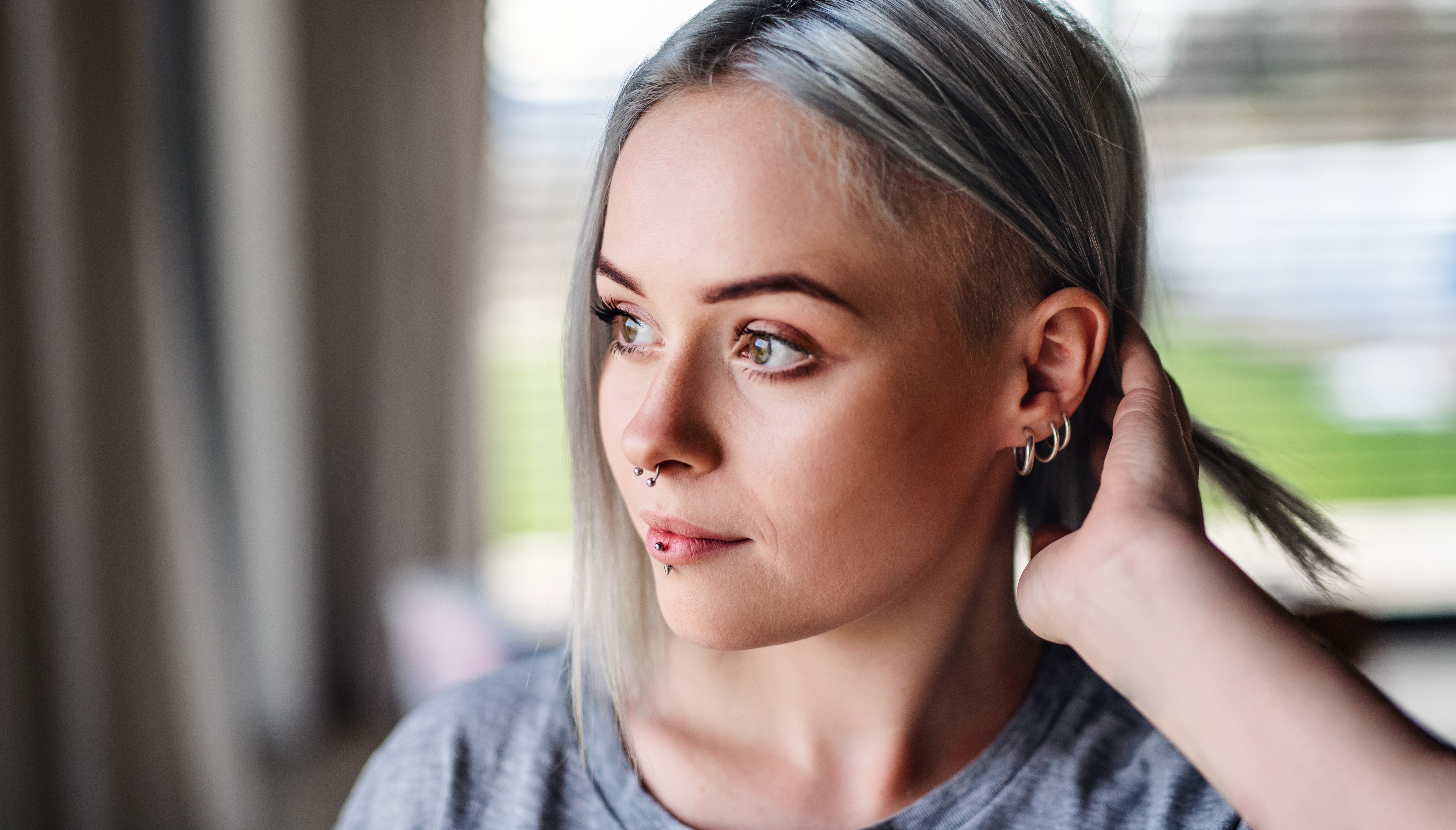Do ear piercings close over time?
Wondering and worrying, 'do ear piercings close?' Here's how to keep your ear piercing looking freshly pierced for longer

It’s 2021 and you can still feel the punched holes in your ear that you had done at the mall after begging your mom for years to let you pierce your ears—despite the fact you haven’t worn earrings in forever.
You may have been warned that ear piercings never close, but this isn’t quite true. Well, not exactly.
Do ear piercings close? Yes, but they generally close quicker the sooner you take them out following having your lobes pierced. The longer you have the best huggie earrings or those studs in for, the longer the holes will take to heal.
It also depends on how much trauma the lobe has experienced, which is why it’s always important to go to a reputable piercing parlor instead of a shop with a piercing booth. (Sorry, Claire's.)
Dr. Deborah Fox, of Dr. Fox Online Pharmacy, tells My Imperfect Life that ear piercings don’t close as long as the piercings are still in the lobe. This is because the piercings prevent the skin edges from coming back together across the wound.
She says: "The act of piercing damages not just the skin on the surface, but also the cartilage underneath. The main barriers to the success of the piercing healing correctly, are infection and local trauma."
"After a piercing, it’s very important to keep the wound very clean, and the earring clean, and to rotate the earring in the wound," the doc advises.
A post shared by ALEX 🌞 (@alexandracoveos)
A photo posted by on
- The key ear piercing trends for 2021 you need to know about
How long does the piercing site take to heal?
As mentioned, the sooner the piercings are out, the sooner healing can begin. And while healing time varies from person to person, in some cases, the piercing site can heal within just hours of being pierced. This is because when you create a hole in your ear, your immune system tries desperately to repair it.
A new earlobe piercing generally, however, will take between six and 12 weeks to heal, with the higher up the earring on the ear, the longer time it takes, due to cartilage taking longer to close up.
For best results, you should completely avoid going any longer than 24 hours without wearing your earrings for the first six months of the piercing to avoid the pierced hole closing.
While there is less chance the pierced hole will close after this initial six months, it’s not completely unknown. So don’t completely write off never being unable to wedge an earring into your ear without re-piercing it.
To help with healing, it’s important to focus on preventing infection.
Dr. Deborah Fox says: "Wash your hands before touching your ears and wash your ear piercing site twice a day with cotton wool dipped in warm, soapy water, and dab it dry. Use cotton wool dipped in an alcohol-based disinfectant twice a day for best results."
A post shared by Cute Ear Piercing Jewelry (@impuriaearpiercingjewelry)
A photo posted by on
- How to pick an ear piercing according to the experts
What you can do to avoid ear piercings closing
If you’re wanting to keep your piercing holes intact, Dr. Fox suggests not removing the earring for at least six weeks, which also helps it heal safely. This is, of course, as long as you don’t experience any ill side effects, such as redness, swelling, pain, pus, or the skin becoming hot to touch. If that's the case, contact your doctor or piercer immediately, as you likely have an infection.
Dr. Fox also suggests always wearing metal earrings. She adds: "Always wear pure metal earrings. Not metal alloys, as these are often nickel, a common cause of skin allergies."
"Gold must be at least 24 karats as anything less is an alloy. Even silver and surgical stainless steel can contain other metals, such as copper," she says.
"If you know you have a metal allergy, or suffer from eczema, take careful advice before allowing any earrings or other rings to be inserted into the ear."
Hattie Gladwell is a freelance journalist who has written for Metro.co.uk, Cosmopolitan UK, LADBible, Grazia UK, The Independent, The Debrief and The Mighty. She is also a mental health advocate, and uses her Twitter following to raise awareness of mental illness.